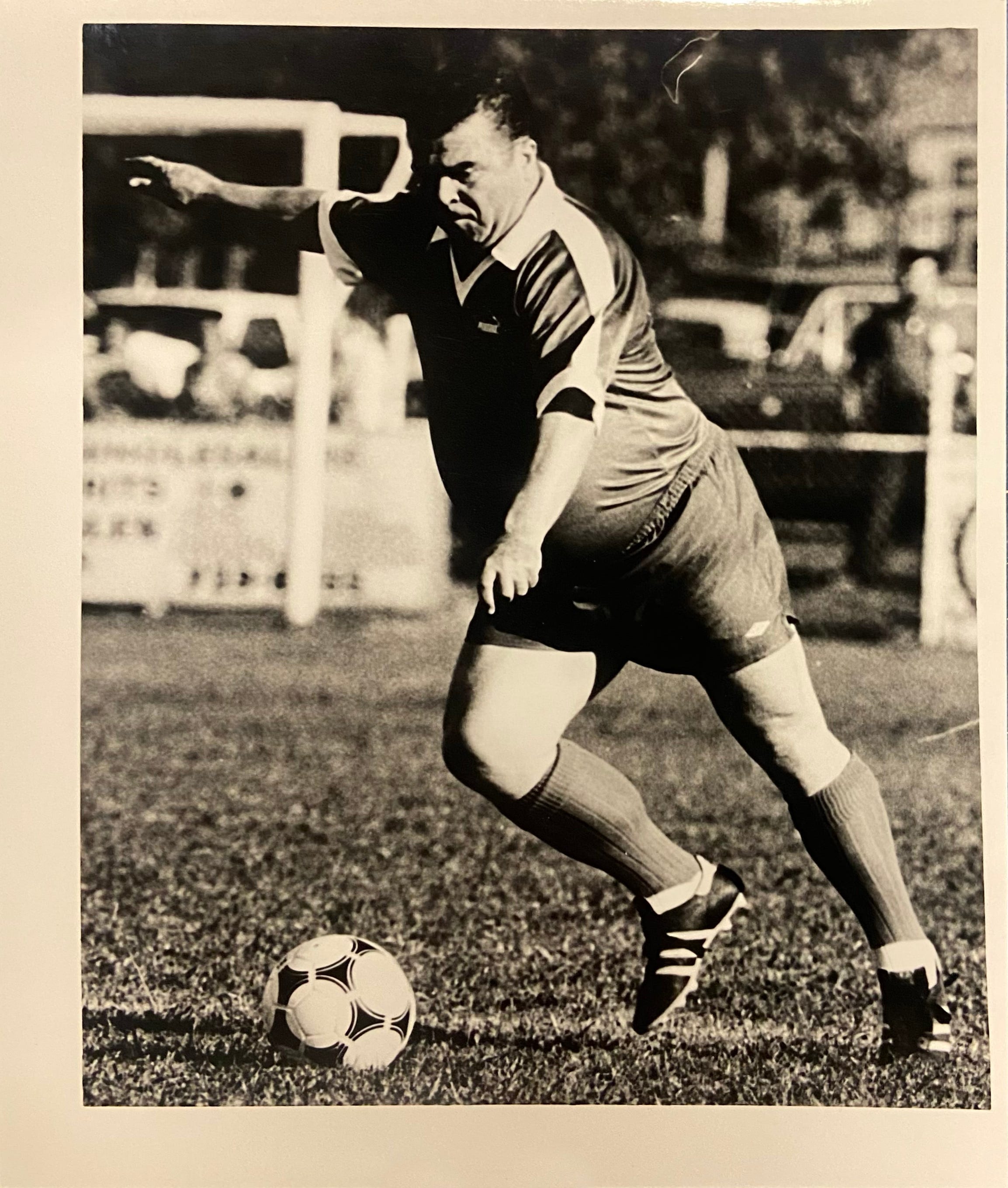When you hear the name Puskas, what comes to mind? For many, it’s a name that echoes through the golden age of football, a symbol of elegance, brilliance, and an unmatched goal-scoring instinct. Ferenc Puskás wasn’t just a footballer; he was a phenomenon. Known as the “Galloping Major,” he played for the Hungarian army club Honved and later became a global football icon at Real Madrid. His career spanned decades, and his influence on the game is still felt today. Whether you're a casual fan or a die-hard follower of football history, the story of Puskás is one worth diving into.
From Olympic glory in 1952 to leading Hungary to the 1954 World Cup final, Puskás carved a place in history that few have matched. His move to Real Madrid didn’t just change his career—it changed European football. So, whether you're curious about how he became a legend or just want to know more about the man behind the name, this article will walk you through the journey of one of football’s greatest ever.
So, let’s take a closer look at who Ferenc Puskás was, what made him a football icon, and why his name still matters in today’s game.
Table of Contents
Biography
Born in Budapest, Hungary, on April 1, 1927, Ferenc Puskás was destined to leave a mark on the football world. His early years saw him playing for local clubs before joining the army team Honved. This is where the nickname “Galloping Major” came from, as he served as a military officer while dazzling on the field. But Puskás was more than just a soldier; he was a forward with a rare gift for scoring goals and leading his team with charisma and skill.
Let’s take a quick look at his life in numbers and dates:
| Full Name | Ferenc Puskás |
|---|---|
| Born | April 1, 1927, Budapest, Hungary |
| Died | November 17, 2006, Budapest, Hungary |
| Position | Forward |
| Clubs | Kispest Honved, Real Madrid |
| International Caps | Hungary (85), Spain (4) |
| Major Honors | 3 European Cups, 10 National Championships |
Career Highlights
Let’s talk about the numbers—because when it comes to Puskás, the stats speak for themselves. He scored over 800 goals in his professional career, a staggering figure that still ranks him among the top goal scorers of all time. His 1952 Olympic gold medal with Hungary was just the beginning of a meteoric rise. By the time he led his nation to the 1954 World Cup final, he was already a household name.
Then came Real Madrid. In 1958, he joined the Spanish giants and quickly became a fan favorite. He dazzled fans with his gentlemanly demeanor and his sharp instincts on the field. He helped Real Madrid win the European Cup three times—in 1959, 1960, and 1966—and was instrumental in securing five Spanish league titles. His partnership with Alfredo Di Stéfano became the stuff of legend, and their chemistry on the field was nothing short of magical.
But Puskás wasn’t just a scorer—he was a leader. He had that rare ability to lift his teammates and inspire those around him. That’s why, even decades later, players and fans alike still talk about what made him so special. His career spanned the 1950s and 1960s, and during that time, he became a symbol of footballing excellence, especially in Europe.
Life Off the Field
Off the field, Ferenc Puskás was known for his charm and friendliness. Unlike some of the more aloof stars of his time, he was approachable and connected easily with fans. He wasn’t just a player; he was a person people looked up to. He carried himself with grace, and that made him even more beloved by supporters around the world.
His life wasn’t without its challenges. The 1956 Hungarian Revolution forced him to leave his homeland, and he eventually settled in Spain. While that must have been tough, he made the best of it and became part of the fabric at Real Madrid. He even played a few games for Spain’s national team later in his career, which just shows how versatile and respected he was across borders.
Even after retirement, Puskás stayed connected to the game. He managed a few clubs and worked to keep his legacy alive. Today, the Puskás Award, given annually by FIFA to the best goal of the year, is named in his honor—a fitting tribute to a man who redefined what it meant to be a forward.
Puskás Today
So, how does Puskás fit into today’s football landscape? Well, for one thing, his name is still everywhere. The Puskás Award is one of the most prestigious individual honors in world football. It’s given to the player who scores the most beautiful goal of the year, and it’s a nod to how Puskás played the game—with flair, creativity, and an eye for the spectacular.
Fans still visit Puskás-related sites in both Hungary and Spain. In fact, there’s even a dedicated website, puskas.com, where fans can learn more about his life, achievements, and impact on the game. Whether you're into trivia or just want to see what made him so special, this site is a treasure trove of Puskás history.
And of course, his name comes up every time someone talks about the greatest players of all time. He’s often mentioned alongside legends like Pelé, Maradona, and Messi. That’s a testament to how much he shaped the game and how his legacy lives on in modern football culture.
Frequently Asked Questions
Why is the Puskás Award named after him?
The Puskás Award, given by FIFA, honors the most beautiful goal of the year. It was named after Ferenc Puskás because of his incredible scoring record and the aesthetic brilliance he brought to the game. His goals were not just effective—they were artistic, making him the perfect namesake for such an award.
How many goals did Puskás score in his career?
Over his professional career, Puskás scored more than 800 goals. This includes his time with Hungarian and Spanish clubs, as well as his appearances for both the Hungarian and Spanish national teams.
Which clubs did Puskás play for?
Puskás played for two major clubs: Kispest Honved in Hungary and Real Madrid in Spain. He had a legendary career with both teams, winning multiple titles and cementing his place in football history.
Learn more about his legendary career and achievements by visiting Puskás’ story on our site. You can also explore other legends of the game here.



Detail Author:
- Name : Prof. Fern Beier V
- Username : alysson.pagac
- Email : qernser@hotmail.com
- Birthdate : 2003-03-01
- Address : 630 Pacocha Cape Suite 628 East Joaquinfurt, PA 02223-3382
- Phone : +1.440.225.2813
- Company : Koelpin, Thompson and Kling
- Job : Forester
- Bio : Qui vel doloremque et quos. Qui est quo deserunt nesciunt ducimus autem amet aut.
Socials
tiktok:
- url : https://tiktok.com/@martine.mante
- username : martine.mante
- bio : Perspiciatis unde eaque tempora et. Est vel officiis totam esse consequatur.
- followers : 620
- following : 28
facebook:
- url : https://facebook.com/martine_dev
- username : martine_dev
- bio : Quibusdam repellendus provident eum suscipit quibusdam.
- followers : 1005
- following : 2317
instagram:
- url : https://instagram.com/martinemante
- username : martinemante
- bio : Iste corrupti non saepe et. Praesentium quibusdam quis voluptatem quo atque pariatur.
- followers : 1626
- following : 2721
linkedin:
- url : https://linkedin.com/in/martine.mante
- username : martine.mante
- bio : Dolor suscipit sit fugit rerum et dolor.
- followers : 1400
- following : 2593
twitter:
- url : https://twitter.com/martine_mante
- username : martine_mante
- bio : Eius velit consequatur quidem neque ut ea. Voluptatem non facilis et officiis animi qui. Est doloribus est vitae facilis.
- followers : 6880
- following : 973

